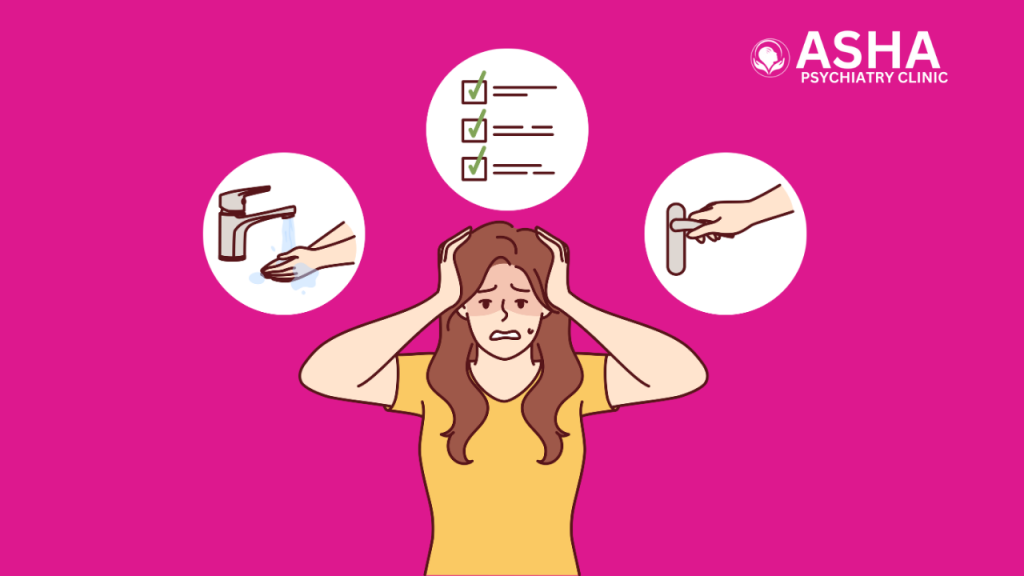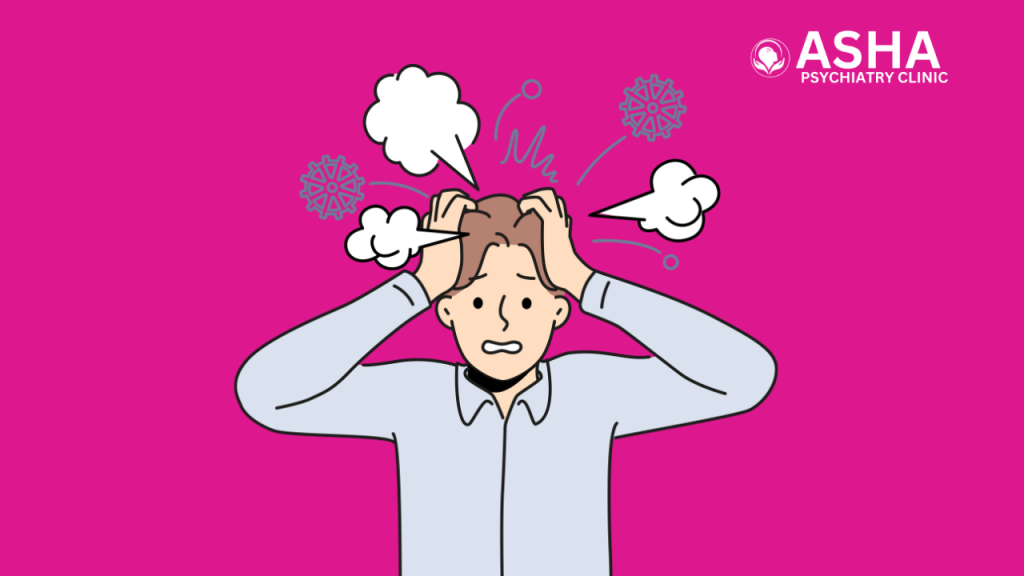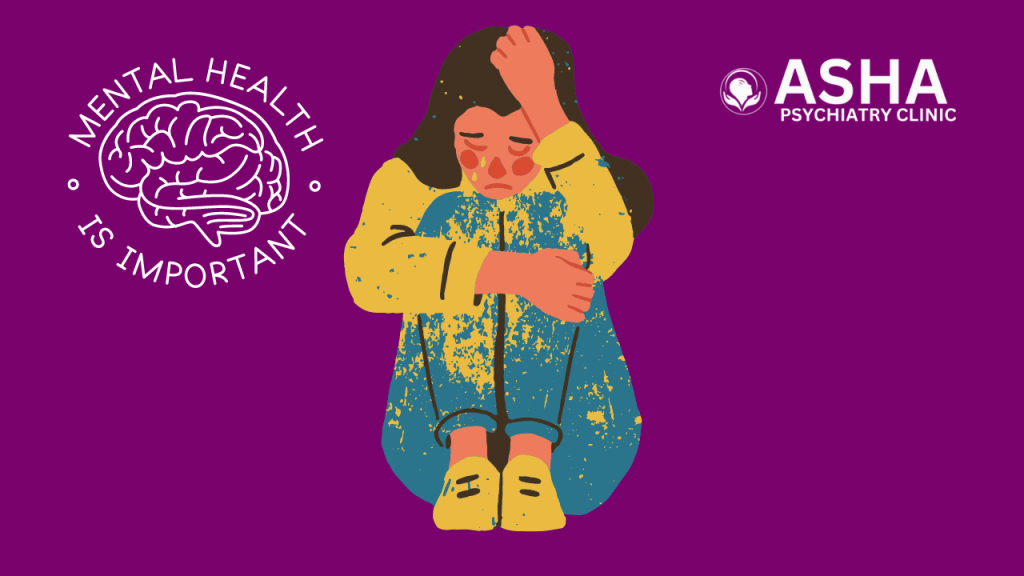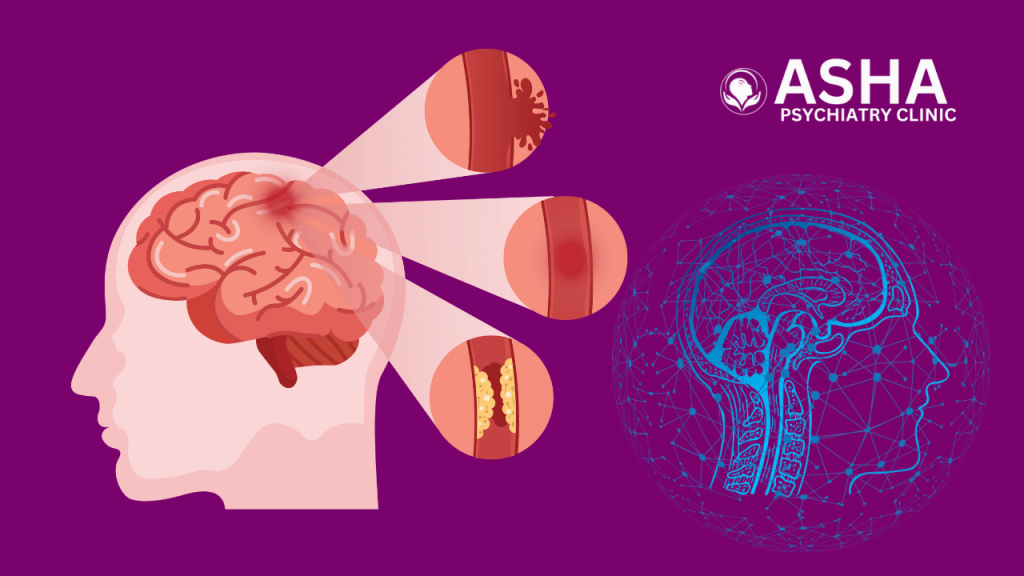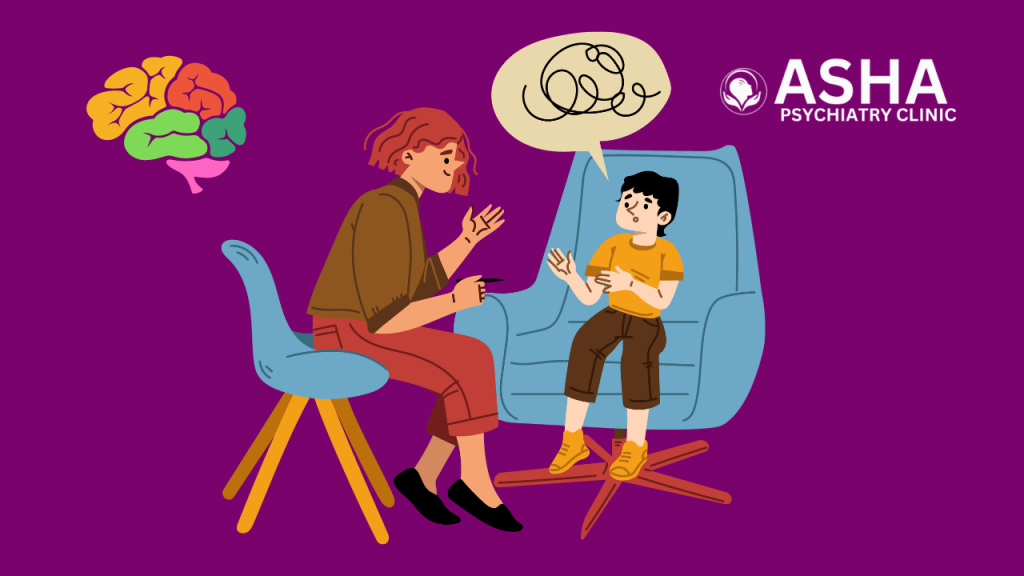Dementia, is a progressive disorder affecting memory, cognitive function, and behaviour, is increasingly prevalent in the ageing population. Evidence suggests that certain lifestyle choices can significantly reduce the risk of developing dementia. Dr. Srikanth Bandari, a renowned psychiatrist with expertise in neuropsychiatry, has shared valuable insights on preventing and treating dementia through early intervention and proactive measures.
Asha Psychiatry Clinic offers advanced and modern treatment options for dementia patients through Hyderabad’s top-rated psychiatrist, Dr. Srikanth Bandari.
It’s strongly advised to recognize the symptoms of dementia and follow the methods according to the doctor’s suggestions. If you have any doubts, immediately contact a nearby psychiatrist or call Asha Psychiatry Clinic.
What is the Dementia
Dementia is a general term for a decline in cognitive function that is severe enough to interfere with daily life. It impacts memory, thinking, communication, and behaviour that is all the higher mental functions.
Dementia is caused by damage to brain cells, which affects their ability to communicate, leading to problems with cognition, language, and judgment.
Alzheimer’s disease is the most common form of dementia, but other types include vascular dementia, Lewy body dementia, and frontotemporal dementia.
Symptoms progress over time, starting with memory loss and confusion, eventually affecting a person’s ability to perform everyday tasks. While there is no permanent cure, treatments can help manage symptoms.
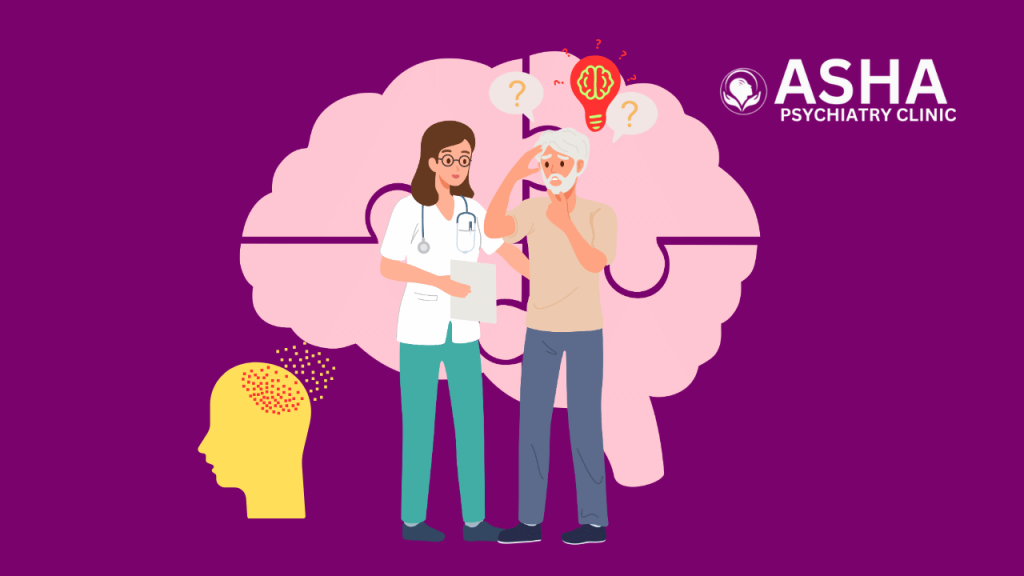
Types of Dementia
Dementia is a term that encompasses several specific types, each with unique characteristics. Below is a list of the most common forms of dementia:
- Alzheimer’s Disease: The most common type, characterized by memory loss and cognitive decline due to amyloid plaques and neurofibrillary tangles in the brain.
- Vascular Dementia: Caused by reduced blood flow to the brain, often following a stroke or series of small strokes. causes step ladder kind of dementia.
- Lewy Body Dementia: Marked by abnormal protein deposits (Lewy bodies) in the brain, leading to symptoms like memory loss, visual hallucinations, and movement problems.
- Frontotemporal Dementia: Involves damage to the frontal and temporal lobes, resulting in personality changes, behaviour issues, and language difficulties.
- Mixed Dementia: A combination of two or more types, often Alzheimer’s and vascular dementia.
- Parkinson’s Disease Dementia: Occurs in people with Parkinson’s disease, affecting movement and cognitive abilities.
- Creutzfeldt-Jakob Disease (CJD): A rare and rapidly progressing form of dementia caused by prion proteins.
- Huntington’s Disease: A genetic disorder causing cognitive decline, mood changes, and motor dysfunction.
- Normal Pressure Hydrocephalus (NPH): Caused by a build-up of cerebrospinal fluid, leading to memory issues, gait problems, and incontinence
Each type of dementia has distinct causes, symptoms, and progression, requiring tailored management approaches.
Symptoms of Dementia
Dementia affects memory, thinking, and behaviour. Key symptoms include:
- Memory loss – Frequently forgetting recent events or important information.
- Difficulty with communication – Struggling to find words or follow conversations.
- Confusion – Getting lost in familiar places or misplacing objects.
- Impaired reasoning – Poor decision-making or difficulty solving problems.
- Mood changes – Experiencing depression, anxiety, or irritability.
- Personality changes – Becoming more withdrawn, suspicious, or apathetic.
- Difficulty with coordination – Struggling with balance or motor skills.
- Disorientation – Trouble with time, place, or recognizing familiar faces.
How to Prevent Dementia
Please Note: There are no guaranteed ways or methods to prevent dementia, adopting the strategies recommended by Dr. Srikanth Bandari can substantially reduce the risk of cognitive decline.
- Maintain an Active Brain
- Engage in mentally stimulating activities like reading, puzzles, learning new skills, or playing musical instruments.
- Dedicate at least 30 minutes a day to brain-challenging activities like Sudoku, crosswords, or learning a new language.
- Prioritize Physical Activity
- Aim for at least 150 minutes of moderate-intensity aerobic activity per week, such as walking, swimming, or cycling.
- Include strength training to maintain overall body health and brain function.
- Adopt a Heart-Healthy Diet
- Follow the Mediterranean diet, incorporating vegetables, fruits, whole grains, lean proteins (such as fish), and healthy fats (like olive oil).
- Incorporate brain-friendly foods such as fatty fish, nuts, berries, and leafy greens into your diet.
- Manage Stress and Mental Health
- Practice mindfulness, meditation, and relaxation techniques to manage stress effectively.
- Maintain strong social connections and seek therapy for conditions like depression and anxiety.
- Get Quality Sleep
- Aim for 7–9 hours of uninterrupted sleep each night to allow your brain the time it needs to repair and rejuvenate.
- Maintain good sleep hygiene, including having a consistent sleep schedule and creating a restful sleep environment.
- Control Chronic Health Conditions
- Monitor blood pressure, blood sugar, and cholesterol levels regularly and follow your doctor’s guidance to manage these health issues effectively.
- Avoid Smoking and Excessive Alcohol
- Quit smoking entirely and moderate alcohol intake to protect brain health.
- Stay Socially Engaged
- Participate in social activities, join clubs, and stay in touch with loved ones to foster social engagement and emotional well-being.
- Regular Cognitive Screening
- Consider regular cognitive screening, especially for individuals over the age of 65 or those with a family history of dementia.
Latest and Advanced Treatment Options for Dementia by Dr. Srikanth Bandari
According to the continuous improvement of medical treatment options, Asha Psychiatry Clinic consistently offers the latest and most advanced methods to its patients, keeping up with the world’s leading treatment options through Hyderabad’s Top Rated Psychiatrist Dr Srikanth Bandari.
- Using New s: Medications to improve communication between brain cells and Help regulate glutamate, a brain chemical involved in learning and memory through new drugs.
- Lifestyle interventions – Focus on physical exercise, mental stimulation, and social engagement to delay progression.
- Cognitive rehabilitation – Personalized training to improve problem-solving and memory skills.
- Deep brain stimulation (DBS) – Experimental technique that may boost cognitive function by targeting specific brain regions.
- Gene therapy – Investigational treatments aiming to correct genetic contributors to dementia.
Conclusion
- Although there is no foolproof method to prevent dementia, adopting the strategies recommended by Dr. Srikanth Bandari can substantially reduce the risk of cognitive decline.
- By remaining mentally active, adhering to a heart-healthy lifestyle, managing stress, and emphasizing social engagement, individuals can proactively promote long-term brain health.
- Implementing these small yet impactful changes in daily life can establish a groundwork for a healthier and more resilient mind in the future.
If you have any queries feel free to contact Asha Psychiatry Clinic, Lingampally. Hyderabad.

